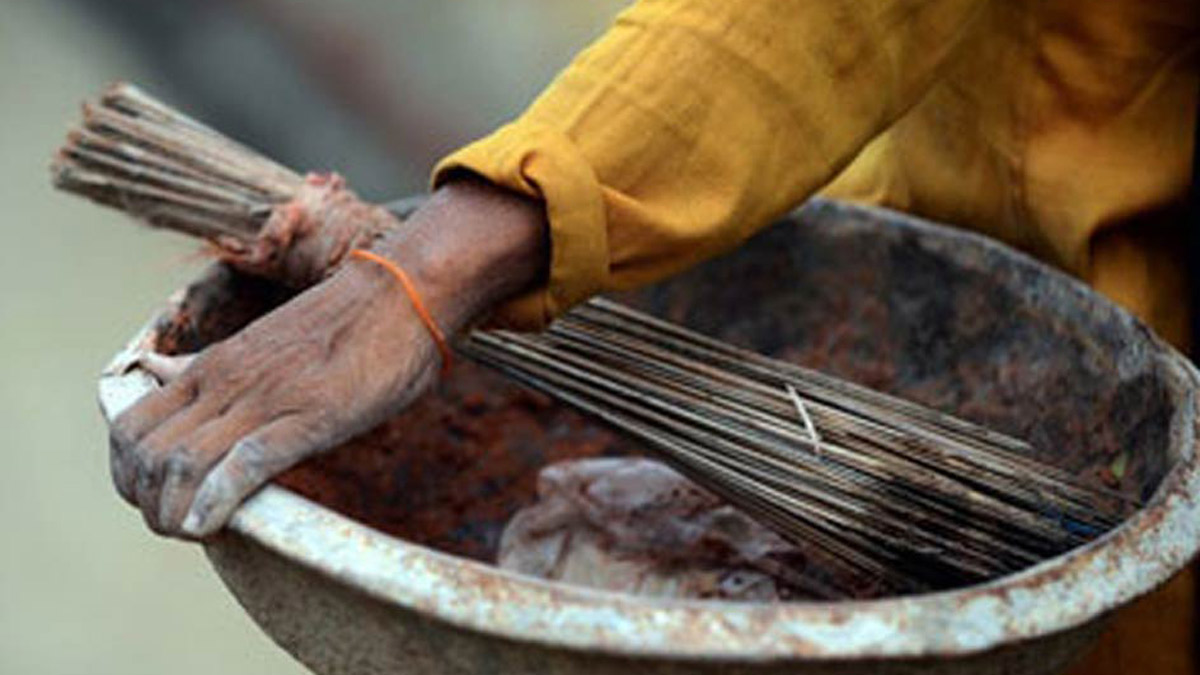Quest to end manual scavenging in India: Maharashtra's 'Manhole to Machinehole' a ray of hope?

In a country where cleaning human excreta is still a caste-assigned occupation, Maharashtra’s newly launched Manhole to Machinehole scheme signals a shift—from degrading manual labour to mechanised dignity.
Launched in August 2022 by former chief minister Eknath Shinde, the initiative aims to phase out the use of human hands in sewer cleaning across 11 municipal corporations, including Mumbai, Pune, and Nagpur.
The Maharashtra government, on Wednesday, decided to reduce the minimum service duration for sanitation workers under a programme aimed at transitioning sewer hole cleaning to a mechanised mode, to 20 years from the existing 25-year norm. Deputy Chief Minister Ajit Pawar chaired a meeting to review issues concerning sanitation workers. He instructed Urban Development Department officials to tweak the minimum service criterion.
An ineffective ban
But the question that looms larger than the manholes themselves is this: Why does manual scavenging still exist in 2025—twelve years after it was banned?
The Prohibition of Employment as Manual Scavengers and their Rehabilitation Act, 2013, made the practice illegal. Yet, according to official data from the Ministry of Social Justice and Empowerment, over 58,000 manual scavengers were identified across India as of 2023. Activists believe the actual number is much higher—hidden under vague job descriptions like “sewer cleaners” or “sanitation workers.”
More chilling is the body count. Over 400 deaths of sanitation workers during sewer or septic tank cleaning have been recorded since 2018, according to the National Commission for Safai Karamcharis (NCSK). Most of these workers are Dalits, continuing to bear the burden of a casteist legacy.
Under Manhole to Machinehole, the Maharashtra government is deploying suction-cum-jetting machines, robotic arms, and protective gear in a phased manner. Crucially, sanitation workers—many of whom have been entering manholes for decades—are being trained to operate these machines.
“This is about dignity, not just technology,” said Shinde at the launch. “We must ensure that no person is ever forced to clean a manhole by hand again.”
Unlike past efforts, Maharashtra’s scheme links technology with social rehabilitation, offering skill development and a gradual exit from caste-based employment.
Mechanisation effort in other states
Maharashtra is not alone in the mechanisation effort. Tamil Nadu has introduced robotic scavengers like Bandicoot in several cities. Kerala is running training programmes for sanitation workers to operate mechanised equipment.
Delhi and UP, however, continue to report deaths of workers inside sewers—often with no accountability. Gujarat continues to report a high number of deaths resulting from manual scavenging.
THE WEEK spoke to Parshottam bhai Vaghela, founder-director of Manav Garima in Gujarat, an activist organisation working in the area of manual scavenging. "I can vouch for the fact that, despite being Prime Minister Narendra Modi's home state, Gujarat continues to report an alarming rate of deaths of manual scavengers. This continues to happen because of apathy by not just the society but the government itself."
"It is inhuman to continue this system and it is unfortunate that it continues right under the government's nose, yet, it lets it happen."
Grim figures
According to a 2018 report by Rashtriya Garima Abhiyan (RGA), titled, 'Death of workers engaged in manual scavenging while cleaning the Septic tank or Sewer,' the highest death rate of 37 per cent was recorded in the age group of 15-25 followed by 35 per cent and 23 per cent in the age group of 25-35 and 35-45 respectively.
Sixty-seven per cent of the total deceased were married.
On March 27, 2014, the Supreme Court of India, in a landmark judgment, declared that a person being forced to enter into a manhole or septic tank would be considered as a crime even in an emergency situation and in case of death of the person, a compensation of Rs. 10 lakh would be awarded to the family of the deceased.
Rashtriya Garima Abhiyan found that out of a total of 51 incidents, only in 31 per cent of the cases the compensation was awarded to the families of the deceased, whereas in the remaining 69 per cent of the incidents, the compensation was not awarded.
The survey was also aimed at ascertaining implementation of the Self-employment scheme for Rehabilitation of Manual Scavengers (SRMS) and Pre-Matric Scholarship for the children whose parents are involved in occupation involving cleaning and health hazard. It noted: "Not a single family whose members have died while cleaning the septic tank or the sewer received their due rights mentioned in the SRMS scheme. Not a single family was rehabilitated in alternative job, on the contrary; the deceased families have had to start engaging in manual scavenging as there was no alternate job available for their sustenance. "
The same goes for the pre-matric scholarship also. "Not a single child of the families who are involved in this hazardous and demeaning practice received the scholarship for their children," noted the report by RGA.
The Centre, too, announced in 2023 that it aims to make India “manual scavenging free” by 2025 under the NAMASTE (National Action Plan for Mechanised Sanitation Ecosystem) scheme. But many municipalities remain under-equipped, under-staffed, or simply indifferent.
While machines can reduce risk, they cannot erase the entrenched stigma attached to sanitation work. As Dalit activist Bezwada Wilson of Safai Karmachari Andolan has often pointed out, “The real problem is not technology. It is caste. It is society’s belief that one group of people is meant to clean the waste of others.”
Unless backed by strong monitoring, worker rehabilitation, and social inclusion programmes, machinisation will at best remain a cosmetic solution. In several cities, for instance, machines lie unused due to lack of trained operators or spare parts, while workers continue to descend into death traps.
Maharashtra’s initiative may not end manual scavenging overnight, but it offers a blueprint. For India to bury this inhuman practice once and for all, other states must follow. Because no one should have to die to keep a city clean.
India